Subject: Substance Use
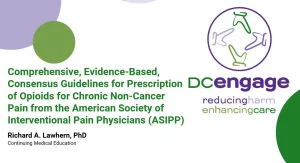
Comprehensive, Evidence-Based, Consensus Guidelines for Prescription of Opioids for Chronic Non-Cancer Pain from the American Society of Interventional Pain Physicians (ASIPP)
This webinar offers a focused overview of the 2023 Clinical Practice Guidelines from the American Society of Interventional Pain Physicians (ASIPP), highlighting evidence-based strategies for prescribing opioids to manage chronic non-cancer pain.
Needs of Returning Citizens with Substance Use Disorders
This module covers the various health and social needs of previously incarcerated individuals with substance use disorders upon returning home to their Washington, D.C. communities.
Cocaine and Methamphetamine Use: Strategies for Addressing Acute Intoxication and Withdrawal
This course discusses the addiction hypothesis behind cocaine and methamphetamine use in order to provide strategies for addressing intoxication and withdrawal.
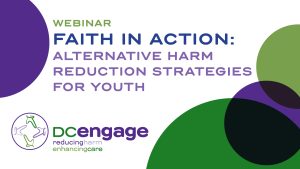
Faith in Action: Alternative Harm Reduction Strategies for Youth
Join us for an insightful and transformative presentation as we explore the intersection of faith, community support, and youth well-being. In this panel discussion, we will examine alternative harm reduction strategies for addressing substance use, mental health challenges, and risky behaviors among young people in our congregational settings.
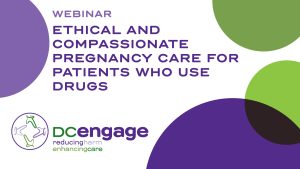
Ethical and Compassionate Pregnancy Care for Patients Who Use Drugs
This webinar will explore the ethical and compassionate approaches needed to provide effective care during pregnancy for patients who are using drugs. Focusing on both the health of the patient and their baby, faculty will examine the importance of nonjudgmental, evidence-based practices that support harm reduction, informed choice, and autonomy.
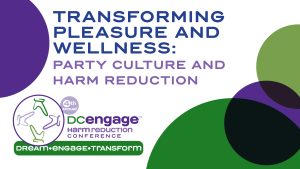
Transforming Pleasure and Wellness: Party Culture and Harm Reduction
This panel discussion explores the intersection of pleasure, party culture, and harm reduction. Panelists will share insights on fostering wellness, promoting safety, and addressing substance use in social settings, emphasizing inclusive, judgment-free strategies to support informed and empowered choices.
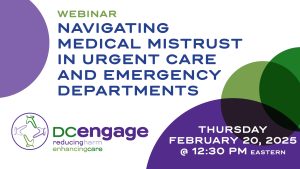
Navigating Medical Mistrust in Urgent Care and Emergency Departments
This webinar will address the critical issue of medical mistrust among individuals who use drugs, especially within the high-stress environments of emergency departments and urgent care centers. Many people who use drugs face unique barriers to receiving compassionate, non-judgmental care in these settings, often due to past experiences of discrimination, stigmatization, and misunderstanding.

Screening, Diagnosis, and Linkage to Care to Improve Longitudinal Care for Opioid Use Disorder and Stimulant Use Disorder
This webinar discusses strategies to increase and improve clinicians’ capacity to provide care for people with OUD and substance use disorder (StUD), increase linkage to care and engagement across various settings, and increase equitable delivery and access to care/services among people who use drugs, as well as those previously underserved by overdose prevention programs.
Equitable Care: Empowering Clinicians in Pain Management for OUD and SUD Populations
This module provides a comprehensive understanding of pain management in individuals with Opioid Use Disorder (OUD) and Substance Use Disorder (SUD), through exploring the physiological and psychological implications of these disorders on pain perception and management; challenges may include balancing pain relief with the risk of addiction, addressing stigma and discrimination, and navigating complex medication regimens.
Patient-Provider Relationship in Addressing Addiction
This module details effective patient-provider communication in addressing opioid use, misuse, and abuse. It identifies and describes models of communication, applying relevant content to the process of addressing opioid use disorders and the concern of stigma in clinical practice.
